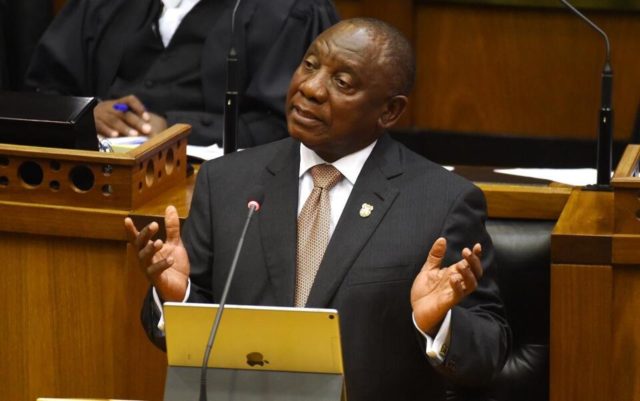The North Gauteng High Court endorsed the submissions made by Ria Tenda Trust and Linkd Environmental Services that another high court ruling had already set aside the findings of the public protector at the time the EFF lodged its application.
THE EFF has lost an application to have the bank statements of President Cyril Ramaphosa’s CR17 campaign made public.
Judge Cassim Sardiwalla of the North Gauteng High Court in Pretoria endorsed the submissions made by Ria Tenda Trust and Linkd Environmental Services that another high court ruling had already set aside the findings of the public protector, advocate Busisiwe Mkhwebane, at the time that the EFF lodged its application.
During the hearing, the counsel for the CR17 funding committee, Ria Tenda Trust and Environmental Services, advocate Wim Trengove, said the EFF only lodged this application after the full bench of the North Gauteng High Court in Pretoria ruled against Mkhwebane in her CR17 investigation.
In March last year, the full bench ruled that the Mkhwebane’s investigation into the CR17 funds was unlawful and illegal. The court also found that Ramaphosa was under no obligation to disclose the donation under the Executive Ethics Act as he did not benefit materially.
The full bench also found that there was no evidence of money laundering or any wrongdoing during the disbursement of the funds.
The parties also said that the EFF application for the lifting of the seal of their documents was late and had no merit. In maintaining the lateness of the application, Trengove said that Deputy Judge President Aubrey Ledwaba sealed the documents on August 15, 2019.
“In October 2019, President Cyril Ramaphosa agreed that lawyers for several organisations, including the public protector, must have access to these documents but must exercise confidentiality. The EFF was also given access to these documents, which included the reasons for Deputy Judge President to seal the documents.
“The EFF had access to these documents but chose not to appeal the decision of the Deputy Judge President until March last year, when the full bench ruled that the investigation of the public protector into the CR17 funds was unlawful. The court found that the records are the fruits of an unlawful investigation,” Trengove said.
He expressed his dismay that the EFF chose to lodge their latest application in August last year and in their heads of argument chose to attack Deputy Judge President Ledwaba.
“They were given access to the documents and Judge Ledwaba’s decision in 2019. They did nothing about it. They did not initiate a process to apply for the seal to be lifted,” Trengove said.
Trengove also asked the court to reject the EFF comparison of their case to that of My Vote Counts. In the My Vote Counts application – where the Constitutional Court ruled in their favour – they argued that funding for political parties contesting for all spheres of government should be made public.
While the Constitutional Court endorsed that application, Trengove argued that the CR17 case was different.
“The election of an ANC president was not a public election. It was a private election of a political party,” Trengove said.
The EFF was ordered to pay costs.
– Political Bureau








